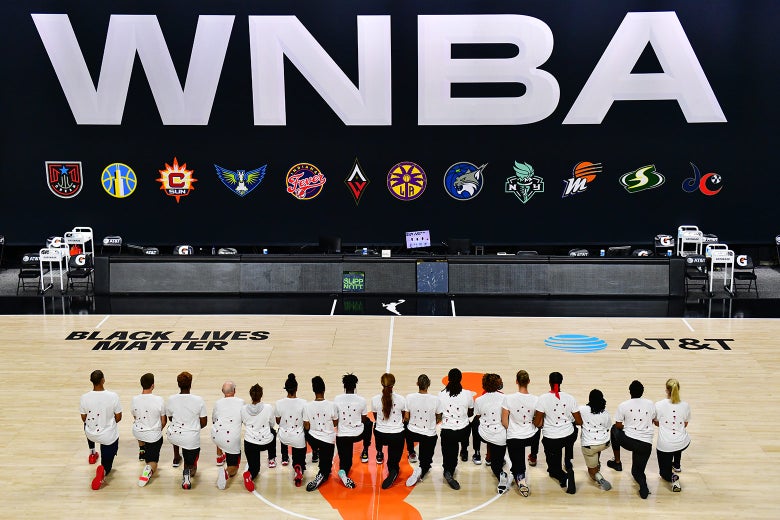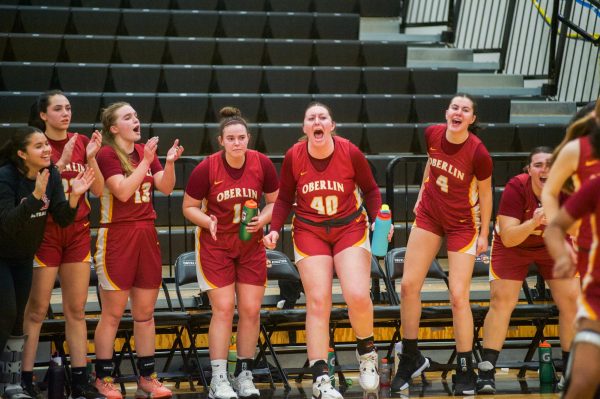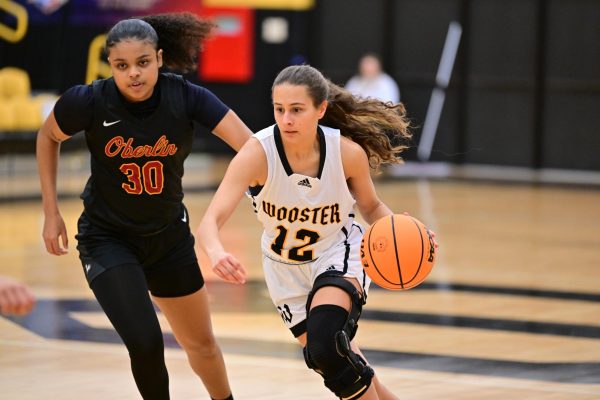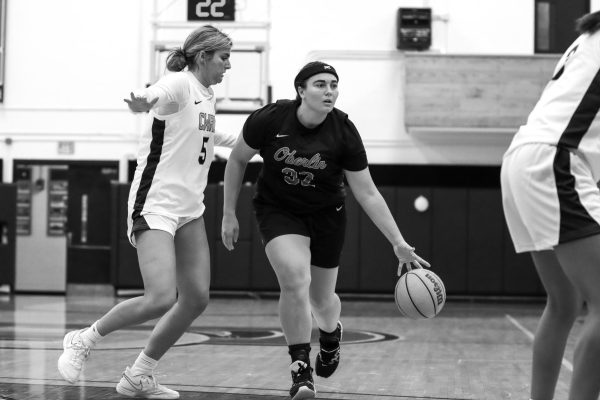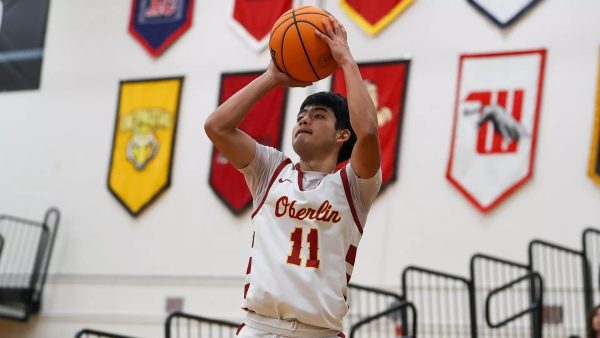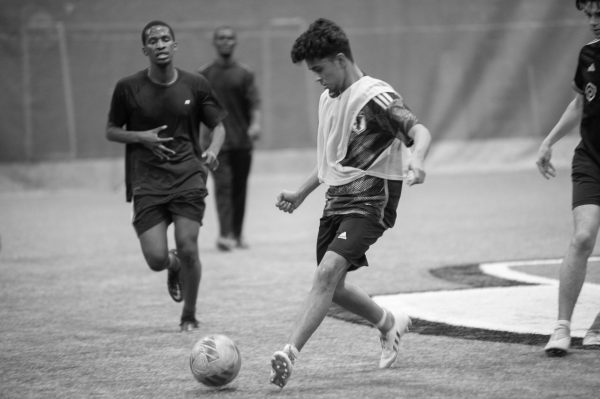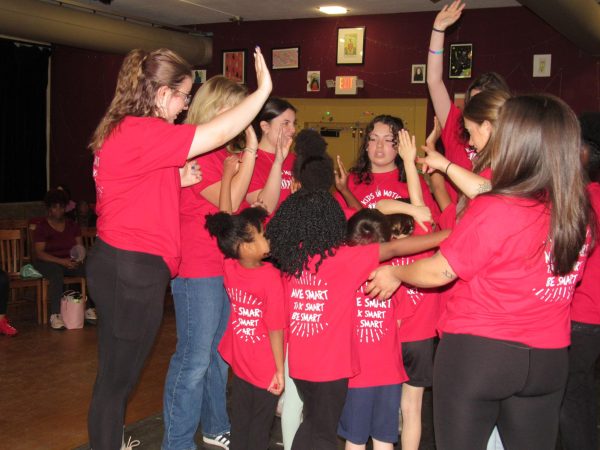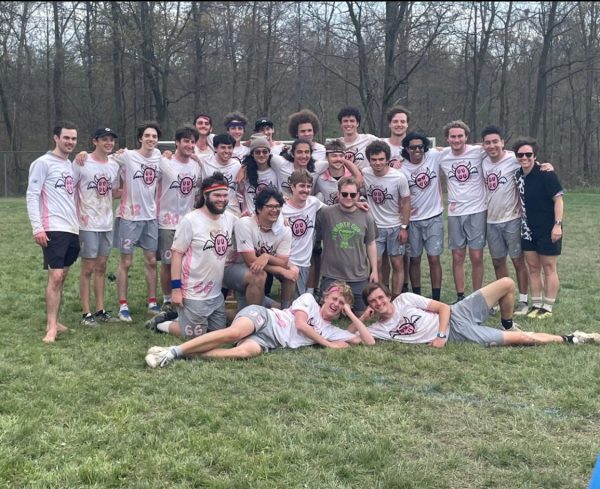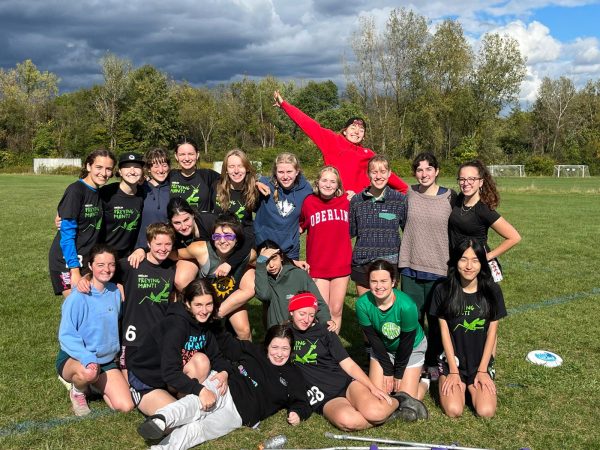The WNBA Won’t Be Ignored
WNBA’s Washington Mystics kneeling and wearing T-shirts printed with seven bullet holes to protest the police shooting of Jacob Blake. Courtesy of Slate.com.
When the Washington Mystics came to their Aug. 26 game each wearing shirts with seven bullet holes in the back, viewers were reminded that the Black Lives Matter Movement is not something that can be ignored or forgotten, even on the basketball court. The Mystics announced they would not be playing that day in honor of Jacob Blake, the Wisconsin Black man who was shot seven times by police.
By this point, social media was abuzz as the NBA’s Milwaukee Bucks said they were striking, just hours before the Mystics’ protest. Soon after, the NBA bubble games were halted for three days across the league to demand systemic change and support from the NBA for social justice initiatives, such as Black Lives Matter.
Meanwhile, the Women’s National Basketball Association is invested in creating long-term change, tied, in large part, to the barriers that WNBA players face every day. Not just the Mystics, but the WNBA overall has been fighting for social justice long before this past week. Despite this, the WNBA are not always recognized for their work both on and off the court.
Mystics’ guard Ariel Atkins spoke on behalf of the team, explaining their decision to also go on strike Wednesday night.
“We wanted everybody to feel like they were supported,” she said on ESPN2. “Understanding that this isn’t just about basketball. We aren’t just basketball players and just because we are basketball players, doesn’t mean that’s our only platform. We need to understand that when most of us go home, we still are Black, in the sense that our families matter.”
Jane Agler, OC ’20, former Sports Editor for The Review, grew up playing basketball and was on the intramural team during her time at Oberlin. She believes that the WNBA and its activism has not always received the recognition it deserves because it would require viewers to understand the systemic inequality that exists in the sporting community.
“To acknowledge the WNBA’s activism from this season would require acknowledging their activism from previous seasons and the fact that being a WNBA player is a constant form of protest,” she wrote in an email to the Review. “By recognizing their protests and activism from this season, people would have to recognize their drastically lower wages, their unequal television broadcasting time, and their disparaged public perception — all of which has existed since the inception of the WNBA and for decades prior. It makes perfect sense why people will subsequently dismiss the WNBA’s activism if it also requires the examination of pre-existing and deeply embedded bigotry.”
In early July, the WNBA announced they were dedicating their 2020 season to social justice, saying the season overall would be in honor of Breonna Taylor, the 26-year-old who was killed in her home by police. Nearly two months later, the NBA launched their own version of a social justice coalition. Still, you might be more likely to have heard about the NBA’s initiative.
Agler drew connections between the public dismissal of WNBA players and dismissal of the BLM movement.
“People are unfortunately acting the same exact way when faced with the matters of police brutality against Black people and the Black Lives Matter movement itself — a refusal to acknowledge these systemic issues stem from the refusal to acknowledge that we are complicit ourselves, and that we have allowed these issues to persist for far too long at the expense of so many people,” she wrote.
College third-year Jack Povilaitis, recreational basketball player and avid sports fan, emphasized the importance of raising awareness of the WNBA’s activism and how their activism has been historically overlooked.
“The sports world chooses to not care about female athletes and the WNBA, and as a result, the viewing public at large chooses not to either,” he wrote to the Review. “It is important to recognize that WNBA players voices aren’t heard because people choose to not listen.”
College third-year and Women’s Basketball player Sammy Spanier believes that the NBA’s acts of protesting receive a much larger spotlight than the WNBA protests.
“Since the start of the league, the WNBA has been judged based on everything except for the actual sport itself,” she wrote.
To Agler, it has become clear that the mold Black female athletes have been forced into comes from the power structures which are violently racist and misogynistic. Agler believes that it is important to discuss the relationship between sports and social justice because BIPOC athletes will inevitably experience racism, disenfranchisement, and degradation.
“It’s a disgusting reality, to put it lightly,” wrote Agler. “And it’s exhausting.”
Povilaitis pointed out that NBA players receive more attention than WNBA players when they make a social justice stance.
“People make a career off of debating what LeBron says, but no one seemed to speak a word as WNBA players wore shirts with bullet holes in them as a protest supporting Jacob Blake,” he wrote.
Despite being faced with this adversity, the WNBA continues to speak their mind. Many female athletes have used their voice and their platform to inspire young women all around the world.
“The WNBA embodies intersectionality through the many different identities that they put forth,” she wrote. “Gender, sexuality, and race are some of the three most prevalent identities that you can see embodied by WNBA players, and through these intertwining identities there is a lot of wisdom and valuable experiences that they adamantly want to share.”
In July the WNBA announced the formation of the WNBA/WNBPA Social Justice Council to continue conversations about race, voting rights, among other social justice initiatives. Players will also wear warm up gear with slogans relating to BLM.
For Spanier, while the current WNBA protests have been incredibly inspiring, she wants to highlight that the WNBA has always been fighting for social justice reform.
“The WNBA’s consistent commitment to standing up for what is right is something I have been even more inspired by,” she said. “There has never been a time when WNBA players were afraid to speak out on issues of social injustice and that is something that is incredibly inspiring.”
The WNBA announced the formation of the WNBA/WNBPA Social Justice Council to continue conversations about race, voting rights, among other social justice initiatives. Players will continue to wear warm up gear with slogans relating to BLM.


